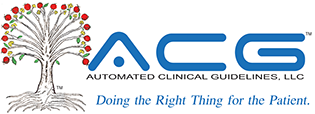
ΨΥΧΗΣ ΙΑΤΡΕΙΟΝ
National Coverage Determination (NCD) for
Vagal Nerve Stimulation (VNS) for Intractable Depression -
RETIRED
Vagal Nerve Stimulation (VNS) for Intractable Depression is not considered reasonable and necessary for the diagnosis or treatment of an injury or disease.
Vagal Nerve Stimulation (VNS) for Intractable Depression (CPT codes 61885,61888, 64568, 64569, 64570, 64585, 95970, 95974, 95975 ) is noted as a noncovered service.
Some of the emerging techniques and associated tools are considered investigational and this LCD does NOT endorse such procedure.
• NOTE: An Advance Beneficiary Notice (ABN) is required for items and services not covered by Medicare
due to being considered not medically reasonable and necessary.
◦ The beneficiary should be thoroughly educated about the benefits and risks of this item or service.
◦ If such notice is not given, providers may not shift financial liability for such items or services to beneficiaries
should a claim for such items or services be denied by Medicare.
Indications:
• At present, the available evidence based on publications in peer-reviewed literature and other pertinent sources, is not sufficient to support VNS therapy for depression.
• Therefore, this Local Coverage Determination (LCD) finds VNS therapy as not reasonable and necessary and not
eligible for reimbursement at this time.
• Effective for services performed on or after May 4, 2007, VNS is not reasonable and necessary for resistant depression. (CMS Manual System, Pub. 100-3, Medicare National Coverage Determinations Manual, Chapter 1, Part 2, Section 160.18C)
Discussion:
• AMA CPT Copyright Statement
• CPT codes, descriptions and other data only are copyright 2015 American Medical Association (or such other date
of publication of CPT). All Rights Reserved.
CPT/HCPCS Codes:
• 61885 INSERTION OR REPLACEMENT OF CRANIAL NEUROSTIMULATOR PULSE GENERATOR OR RECEIVER, DIRECT
OR INDUCTIVE COUPLING; WITH CONNECTION TO A SINGLE ELECTRODE ARRAY
• 61888 REVISION OR REMOVAL OF CRANIAL NEUROSTIMULATOR PULSE GENERATOR OR RECEIVER
• 64568 INCISION FOR IMPLANTATION OF CRANIAL NERVE (EG, VAGUS NERVE) NEUROSTIMULATOR ELECTRODE
ARRAY AND PULSE GENERATOR
• 64569 REVISION OR REPLACEMENT OF CRANIAL NERVE (EG, VAGUS NERVE) NEUROSTIMULATOR ELECTRODE
ARRAY, INCLUDING CONNECTION TO EXISTING PULSE GENERATOR
• 64570 REMOVAL OF CRANIAL NERVE (EG, VAGUS NERVE) NEUROSTIMULATOR ELECTRODE ARRAY AND PULSE
GENERATOR
• 64585 REVISION OR REMOVAL OF PERIPHERAL NEUROSTIMULATOR ELECTRODE ARRAY
• 95970 ELECTRONIC ANALYSIS OF IMPLANTED NEUROSTIMULATOR PULSE GENERATOR SYSTEM (EG, RATE, PULSE
AMPLITUDE, PULSE DURATION, CONFIGURATION OF WAVE FORM, BATTERY STATUS, ELECTRODE SELECTABILITY,
OUTPUT MODULATION, CYCLING, IMPEDANCE AND PATIENT COMPLIANCE MEASUREMENTS); SIMPLE OR
COMPLEX BRAIN, SPINAL CORD, OR PERIPHERAL (IE, CRANIAL NERVE, PERIPHERAL NERVE, SACRAL NERVE,
NEUROMUSCULAR) NEUROSTIMULATOR PULSE GENERATOR/TRANSMITTER, WITHOUT REPROGRAMMING
• 95974 ELECTRONIC ANALYSIS OF IMPLANTED NEUROSTIMULATOR PULSE GENERATOR SYSTEM (EG, RATE, PULSE
AMPLITUDE, PULSE DURATION, CONFIGURATION OF WAVE FORM, BATTERY STATUS, ELECTRODE SELECTABILITY,
OUTPUT MODULATION, CYCLING, IMPEDANCE AND PATIENT COMPLIANCE MEASUREMENTS); COMPLEX
CRANIAL NERVE NEUROSTIMULATOR PULSE GENERATOR/TRANSMITTER, WITH INTRAOPERATIVE OR
SUBSEQUENT PROGRAMMING, WITH OR WITHOUT NERVE INTERFACE TESTING, FIRST HOUR
• 95975 ELECTRONIC ANALYSIS OF IMPLANTED NEUROSTIMULATOR PULSE GENERATOR SYSTEM (EG, RATE, PULSE
AMPLITUDE, PULSE DURATION, CONFIGURATION OF WAVE FORM, BATTERY STATUS, ELECTRODE SELECTABILITY,
OUTPUT MODULATION, CYCLING, IMPEDANCE AND PATIENT COMPLIANCE MEASUREMENTS); COMPLEX
CRANIAL NERVE NEUROSTIMULATOR PULSE GENERATOR/TRANSMITTER, WITH INTRAOPERATIVE OR
SUBSEQUENT PROGRAMMING, EACH ADDITIONAL 30 MINUTES AFTER FIRST HOUR (LIST SEPARATELY IN
ADDITION TO CODE FOR PRIMARY PROCEDURE)
ICD-10 CM Codes not covered for indications:
• E66.01 - E66.9 Overweight and obesity
• F10.20 Alcohol related disorders
• F10.220 - F10.229 Alcohol related disorders
• F10.230 - F10.239 Alcohol related disorders
• F10.250 - F10.259 Alcohol related disorders
• F10.26 Alcohol related disorders
• F10.27 Alcohol related disorders
• F10.280 - F10.288 Alcohol related disorders
• F10.29 Alcohol related disorders
• F11.10 - F11.99 Opioid related disorders
• F12.10 - F12.99 Cannabis related disorders
• F13.10 - F13.99 Sedative, hypnotic, or anxiolytic related disorders
• F14.10 - F14.99 Cocaine related disorders
• F15.10 - F15.99 Other stimulant related disorders
• F16.10 - F16.99 Hallucinogen related disorders
• F18.10 - F18.99 Inhalant related disorders
• F19.10 - F19.99 Other psychoactive substance related disorders
• F30.10 - F39 Mood [affective] disorders
• F32.9 Major depressive disorder, single episode, unspecified
• F34.1 Dysthymic disorder
• F41.0 - F41.9 Other anxiety disorders
• F42 Obsessive-compulsive disorder
• F50.00 - F50.9 Eating disorders
• F51.01 - F51.9 Sleep disorders not due to substance or known physiological condition
• F84.0 - F89 Pervasive developmental disorders
• F95.2 Tourette's disorder
• G25.0 - G25.2 Essential, drug-induced and other specified forms of tremor
• G30.0 - G30.9 Alzheimer's disease
• G40.301 - G40.919 Epilepsy [other than partial onset]
• G43.001 - G43.919 Migraine
• G44.201 - G44.229 Tension-type headache
• G44.51 Hemicrania continua
• G47.00 - G47.9 Sleep disorders
• G80.0 - G80.9 Cerebral palsy
• H93.11 - H93.19 Tinnitus
• I09.81 Rheumatic heart failure
• I11.0 - I11.9 Hypertensive heart disease
• I13.0 - I13.2 Hypertensive heart and chronic kidney disease
• I50.1 - I50.9 Heart failure
• I63.30 – I63.9 Cerebral infarction [stroke]
• I66.01 – I66.9 Occlusion and stenosis of cerebral arteries, not resulting in cerebral infarction
• J12.0 - J18.9 Pneumonia [post-TBI pneumonia]
• M79.7 Fibromyalgia
• R40.20 - R40.4 Coma
• R51 Headache
• R56.00 - R56.9 Convulsions, not elsewhere classified [seizure NOS]
• R63.2 Polyphagia
• R73.01 - R73.02 Impaired fasting glucose and glucose tolerance test (oral)
• R73.09 Other abnormal glucose [prediabetes]
• S02.0xx - S02.92x Fracture of skull and facial bones [traumatic brain injury]
• S06.0X0 - S06.9X9 Intracranial injury [traumatic brain injury]
• T79.8xx Other early complications of trauma [post-TBI pneumonia
Documentation Requirements:
• Medical necessity for vagal nerve stimulation must be supported in the medical record and not be related to
intractable depression.
• Documentation must be available to Medicare upon request.
Treatment Logic:
• Vagus Nerve stimulator (VNS) therapy involves the direct delivery of intermittent retrograde electrical impulses to the left vagus nerve via a pulse generator, similar to a pacemaker, that is surgically implanted under the skin of the left chest with an electrical lead (wire) connected from the generator to the left vagus nerve.
• Electrical signals are sent from the battery-powered generator to the vagus nerve via the lead. These signals are in turn sent to the brain.
• This device was initially approved in 1997 for epilepsy and there is a Medicare National Coverage Decision (NCD) for that indication.
• In 2005, the FDA approved this device for the treatment of patients 18 years of age or older who are experiencing a major depressive episode and have not had an adequate response to four or more adequate antidepressant treatments.


Copyright 2006-2023 Automated Clinical Guidelines, LLC. All rights reserved.
Home Contact FAQ
Account